|
PRE-CONFERENCE WORKSHOPS - WEDNESDAY, MAY 4
(By advance registration only. Select one of five.
Add $25 fee if you are not attending the conference.)
|
|
FULL-DAY WORKSHOPS 10:00 AM - 5:00 PM Cost: $250 per person
|
|
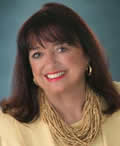
|
Best Practices in Brain Compatible Classrooms: The Science of Success
Believe that all kids can think at grade level, because they can! Learn how teachers strive to close the "opportunity gap" with the science of success. Embedded in brain-friendly learning is the science of how the brain learns best and how teachers use that knowledge to create learning environments that embrace best practices in brain-compatible learning. See how to spark student learning with novelty and how it alerts the natural curiosity of learners, fosters hypothesizing, predicting and "guess-timating" as students buy into the learning. Find out how teachers can support authentic student inquiry through structured and unstructured investigations, explorations and experimentations. Learn how to prepare all students with the Three Story Intellect, for the challenges of the 21st Century; how to arm students for that future world with the tools and techniques of 21st Century thinking.
Robin Fogarty, PhD, President, Robin Fogarty Company; Former Teacher at all grade levels; Co-Author, Brain-Compatible Classrooms (2009), Close the Achievement Gap (2005), Nine Best Practices (2003), Twelve Brain Principles (2003) and From Staff Room to Classroom (2006, 2009), and Brian M. Pete, MA Candidate, Founding Partner, Robin Fogarty Company; Co-Author, Brain-Compatible Classrooms (2009), Close the Achievement Gap (2005), Nine Best Practices (2003), Twelve Brain Principles (2003) and From Staff Room to Classroom (2006, 2009) |
|

|
Brain Research and Strategies to Increase Student Focus, Motivation, Memory and Test Success
In this workshop, you will learn about the latest neuroscience research and correlated educational interventions to promote motivation, attentive focus, growth mindsets and resilient, joyful learners. You will examine how to restore students' natural curiosity; how the brain learns from mistakes; and how you can reduce fear of mistakes and increase the risk-taking needed to build strong, accurate, long-term memory.
Judy Willis, MD, EdM, Board-Certifi ed Neurologist, Middle School Teacher; Adjunct Lecturer, Graduate School of Education, University of California, Santa Barbara; Author, How Your Child Learns Best (2008) and Research-Based Strategies to Ignite Student Learning (2006)
|
|
|
|
|
HALF-DAY WORKSHOPS 1:00 PM - 5:00 PM Cost: $185 per person
|
 |
The Myth of Talent and What it Means for K-12 Classroom Practice
The concept of innate talent and the resulting cult of genius is a widely held belief. However, recent studies in fi elds of epigenetics, psychology, motivation, and sports science all point to a much more interesting conclusion: that people have much greater potential than they are typically given credit for, and that the means for developing that potential are available to us all. In this engaging session, Mr. Wood will walk you through some of the most interesting aspects of this recent shift in thinking and what it means for improving classroom practice.
Willy Wood, MA, President, Open Mind Technologies; former high school teacher; national speaker on brain-based teaching
|
|
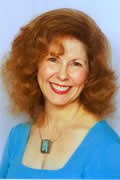
|
Understanding the Brain and Learning for Beginners
The brain is capable of producing breathtaking athletic feats, sublime works of art, and profound scientifi c insights. You will be taken inside this astonishingly complex organ and shown how the brain processes and retains information. Learn the basics of brain anatomy, how neuroscience informs us about how students learn and remember, and how emotions aff ect our thoughts and actions.
Jeanette J. Norden, PhD, Neuroscientist; Director of Medical Education; Professor of Cell and Developmental Biology, Vanderbilt University School of Medicine; Professor of Neuroscience, Vanderbilt University; Winner of Outstanding Teacher of the Year Award
|
|
|
|
|
TWO-HOUR WORKSHOP 1:00 PM - 3:00 PM Cost: $95 per person
|
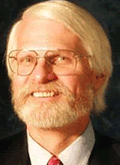 |
From Climbing Mt. Everest to the Classroom: Using Experiential Learning to Design Successful, Lasting Change in Teenagers and Young Adults
Explore the principles of experiential learning gained on Mt. Everest and in the extreme wilderness areas of the world that can also be used in classrooms. Experience a learning cycle model used in experiential learning and based upon leading neuroscience research and established neuroeducational practices. Participate in a dynamic process that has created lasting changes in students and instructors alike.
Jeb Schenck, PhD, Adjunct Professor, University of Wyoming; High School Teacher; Author, Teaching and the Adolescent Brain (2011) and Teaching to the Brain: Best Practices, Best Ideas (2008); leader and veteran of mountaineering expeditions including Mt. Everest and Mt. McKinley; and Jessica Cruickshank, EdM Candidate (2011), Program and Curriculum Director, Solid Rock Outdoor Ministries (SROM); Member of international expeditions; Researcher on the applications of neuroscience to learning
|
|
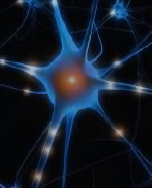
|
NORTHWESTERN BRAIN WAVES TOURS:
HOW THE BRAIN LISTENS
WEDNESDAY, MAY 4 AT 2:00 PM AND 3:00 PM
Cost Per Person: $120 (Each tour is one hour.)
Sponsored by the AUDITORY NEUROSCIENCE LABORATORY, Northwestern University
Take this unique opportunity to see brain activity recorded in action and learn about research at Northwestern University's Auditory Neuroscience Lab. Call 781-449-4010 ext. 101 for information and to register for a tour. One person from each tour will be selected by the Laboratory to have his/her brain waves recorded while doing an experiment. Limited enrollment. For more information on the Auditory Neuroscience Laboratory and brain stem recordings, go to brainvolts.northwestern.edu.
|
|
|
|
POST-CONFERENCE WORKSHOPS - SATURDAY, MAY 7
(By advance registration only. Select one of three.
Add $25 fee if you are not attending the conference.) |
|
HALF-DAY WORKSHOPS 1:00 PM - 4:30 PM Cost: $145 per person
|
 |
Teaching Students of Poverty and Diversity
In this workshop, you will study the effects of culture, poverty and bias on students' learning processes and assessments, and methods to overcome those challenges. Learn strategies that emphasize declarative and procedural knowledge, that modify for diverse students' particular needs and which exploit the functions of memory and build resilience.
Donna Walker Tileston, EdD,Founder and President, Strategic Teaching and Learning in Dallas, TX; Author, What Every Teacher Should Know About Learning, Memory and the Brain (2003); Co-Author, Closing the Poverty and Culture Gap: Strategies to Reach Every Student (2009)
|
|

|
Risk and Resilience: Changing the Lives of Children with ADHD
Dr. Goldstein will provide an overview of current research on the eff ectiveness of treatments for ADHD, on both a symptom relief and longterm outcome basis. He will review the resilience literature focusing on variables to improve outcomes for youths with neurodevelopmental problems. Dr. Goldstein will provide suggestions for a treatment protocol for ADHD that balances symptom relief and resilience.
Sam Goldstein, PhD, Assistant Clinical Instructor, University of Utah Medical School; Clinical Director, Neurology Learning and Behavior Center in Salt Lake City; Co-Author, Practitioner's Guide to Assessing Intelligence and Achievement (2010), Handbook of Resilience (2006) and Managing Attention and Learning Disorders in Late Adolescence and Adulthood (2010, 2nd Ed.)
|
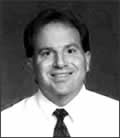 |
The Neuropsychology of Math Disorders
Explore how children learn and acquire basic mathematical skills in the elementary years. Dr. Feifer will discuss ways in which numbers are formatted in the brain and the role of language in ordered number sets. He will also address cultural stereotypes regarding gender differences in mathematics and the relationship between anxiety and math performance. Come away with a better understanding of math disabilities, learn critical assessment techniques, and be able to introduce better ways to diagnose and remediate math disorders in children.
Steven G. Feifer, EdD, NCSP, Neuropsychologist; School Psychologist, Frederick County Public Schools; co-author, The Neuropsychology of Mathematics (2005) and The Neuropsychology of Reading Disorders: Diagnosis ghj_amp Intervention (2000)
|










